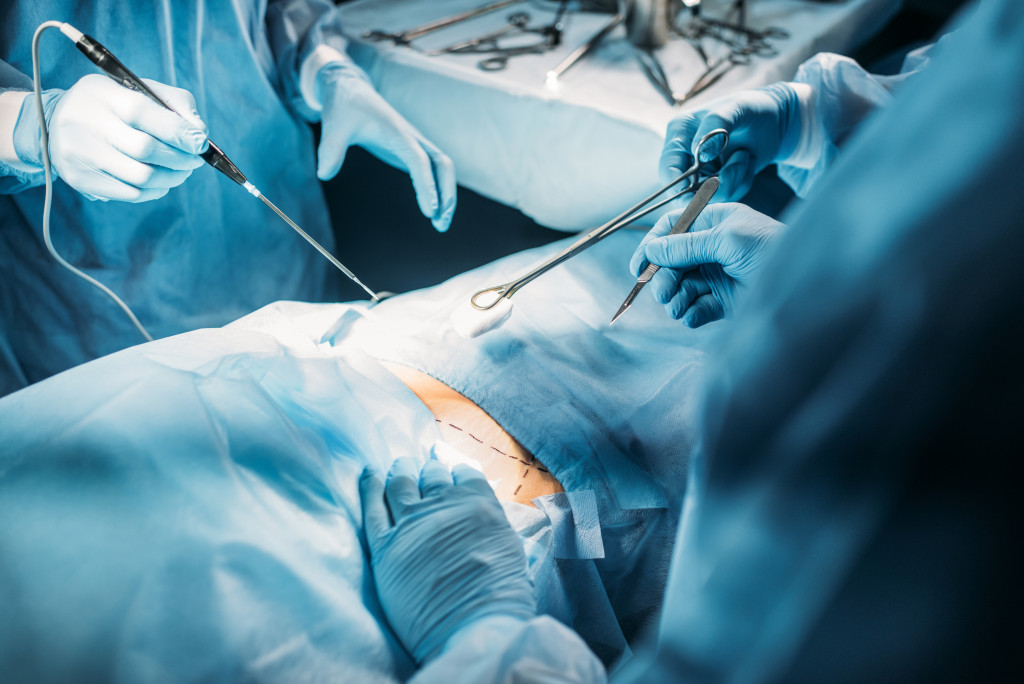• Before major surgery, it is crucial to prepare mentally and physically.
• During the healing process, focus on rest and relaxation while doing light physical activities recommended by your doctor.
• After surgery, it is important to continue following up with your doctor regularly and track any symptoms.
• Don’t rush recovery and take breaks when needed so that your body has ample opportunity to heal.
Major surgeries can be intimidating, but they don’t have to be. With the right preparation and attitude, recovery can go much smoother than you think. It helps to know what to expect after surgery, so here are some tips for recovering from the major ones.
Before Surgery — Preparing for Recovery
Before major surgery, it is vital that you prepare yourself both mentally and physically for the recovery process. Make sure your home is ready for your return by organizing any necessary supplies or equipment needed for your recovery period. Here are some other things to consider:
Talk to your doctor and ask questions.
Your doctor will be able to orient you on the types of pain medications you may need to take and their side effects. You can also ask when you can resume normal activities, such as driving or returning to work.
Get plenty of rest before surgery.
Your body needs to be well-rested before any major surgery. This ensures that your immune system is at its strongest and can fight off infection or complications more easily. Moreover, rest can help keep your stress levels down and make recovery easier.
Make sure your home is stocked.
Before your surgery, make sure you have all the supplies you need for recovery. This includes any medications prescribed by your doctor and items like extra pillows or a walker that you may need for assistance.

During Surgery — The Healing Process
The healing process begins in most cases when the procedure is completed. During this time, it is important to focus on rest and relaxation while still doing light exercises and physical activities as your doctor, or physical therapist recommends.
This may include walking around or stretching lightly, breathing exercises depending on the type of surgery that was performed, and any other medical conditions that could affect the recovery time frame or intensity of activities allowed post-op. Alternatively, if you have been prescribed bed rest, get as much sleep and relaxation as possible.
Try to remain positive throughout this process. Although it may seem daunting, remember that it won’t last forever.

After Surgery — Follow-Up Care
After major surgery, it is essential to continue following up with your doctor regularly until you fully recover from the procedure itself and any associated side effects, such as pain medications or swelling-related issues. Once you’re cleared, here are some strategies you can employ:
Hire home health care services.
Consider hiring professional home health care services if you need extra help at home. These services can provide additional support with tasks such as bathing, dressing, and preparing meals. For instance, you may need help with activities that require more physical strength or dexterity.
Maintain a healthy diet and lifestyle.
It’s essential to continue eating nutritious meals and exercising after surgery to stay strong, heal properly, and avoid infection. Eating well-balanced meals will also ensure that your body gets enough vitamins and minerals for recovering from major surgery. Additionally, keep in mind that smoking and drinking alcohol can interfere with the healing process, so it’s best to avoid these activities during recovery.
Track any changes in symptoms.
Be sure to keep track of any changes in symptoms or side effects during this time so that they can be addressed properly if necessary. These can be as simple as keeping a journal to jot down any changes or even using an app on your phone.
Don’t rush the recovery.
Also, try not to push yourself too much, even though it may be tempting at times. Make sure to take breaks when needed so that your body has ample opportunity to heal properly without overdoing it. Remember, don’t be too hard on yourself — you are taking the necessary steps to regain your strength and health.
Recovering from major surgery does not have to be an overwhelming experience—in fact, with proper preparation and follow-up care, it can actually be quite manageable. Remember that healing time frames vary depending on many factors, such as age and overall health status prior to operation, so make sure to talk with your doctor about what specifically applies in your case before beginning any sort of therapeutic activity post-op. With the right attitude and approach, recovering from major surgeries can go a lot smoother than you think.


